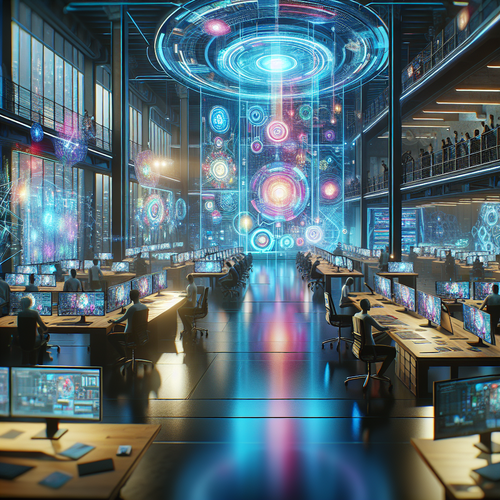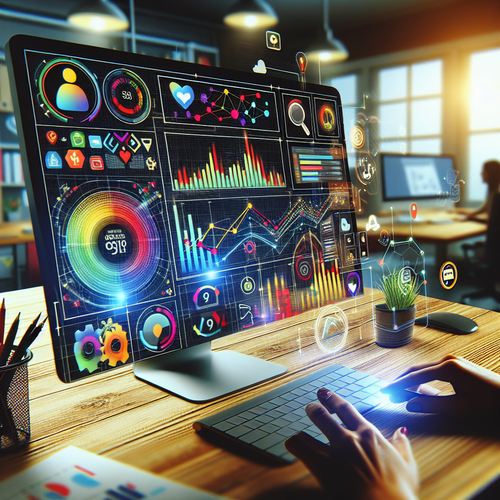
The Future of AI in Game Development: Trends to Watch
The Future of AI in Game Development: Trends to Watch
As technology evolves, artificial intelligence (AI) emerges as a game-changer in various industries, including gaming. Game developers are increasingly incorporating AI to enhance gameplay, automate processes, and improve player experience. In this article, we will explore how AI is shaping the future of game development.
AI-Driven Game Mechanics
AI’s integration into game mechanics allows developers to create adaptive and intelligent systems that respond to player actions. Here are some significant trends:
- Procedural Content Generation: AI algorithms generate game content dynamically, offering players unique experiences with fewer resources required for design.
- Enhanced NPC Behavior: Non-player characters (NPCs) utilize AI to exhibit more realistic behavior, enhancing immersion in the gaming environment.
- Personalized Gaming Experiences: AI analyzes player preferences and adapts gameplay to create customized experiences that keep players engaged.
AI Tools Revolutionizing Game Development
Numerous AI-powered tools are emerging to assist developers in various aspects of game creation:
- AI-Based Animation: Tools like DeepMotion leverage AI to automate character animations, significantly reducing time and effort.
- Game Testing Automation: AI can run tests and identify bugs faster than human testers, ensuring smoother launches.
- Game Audio Design: AI-generated audio adapts in real-time, providing a dynamic soundtrack that complements gameplay.
Impact of AI on Game Design
AI is not just about automation; it also influences creative decisions. By analyzing trends and player feedback, developers can learn what resonates with gamers. Additionally, AI contributes to improved storytelling and character development:
- Realistic Dialogue Systems: AI chatbots can engage players in meaningful conversations, enhancing narrative immersion.
- Adaptive Storylines: Games can evolve based on player choices, making each playthrough a unique experience.
The Role of Machine Learning in AI Games
Machine learning enables game engines to learn from player behavior, enhancing overall gameplay. This technology can predict player moves, adjust difficulty levels, and provide tailored content—forming a symbiotic relationship between the player and the game.
Future Challenges and Considerations
While embracing AI in game development brings numerous benefits, challenges exist. Developers must consider ethical implications, including data privacy and algorithmic bias. Striving for transparency and fairness in AI systems will be crucial as the industry progresses.
Case Studies of AI in Game Development
Several innovative titles demonstrate the potential of AI:
- Middle-earth: Shadow of Mordor: This game introduced the Nemesis System, a groundbreaking AI feature that personalizes NPC interactions based on player behavior.
- No Man’s Sky: Procedural generation powered by AI allows for an expansive universe with unique planets and ecosystems.
For further insights on the transformative powers of AI in various sectors, check out our recent post on The Impact of AI on Supply Chain Management.
Conclusion
The future of game development is indeed exciting, with AI at the forefront. By adopting these technologies, developers can create immersive worlds that evolve with player interactions. The blend of creativity and technology ensures a thrilling journey ahead for gamers globally.












